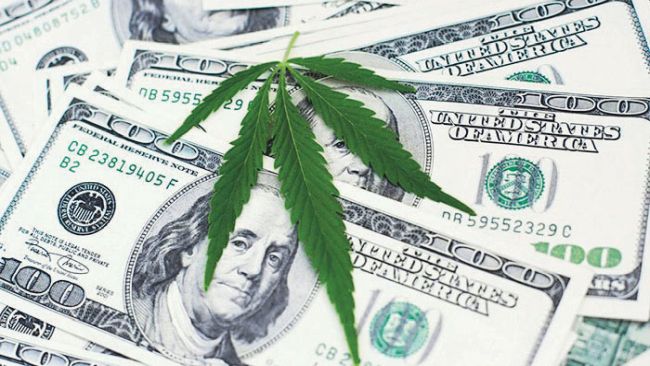Depending on who one talks to, the subject of provision 280E of the U.S. Tax Code is likely to elicit yawns. It sounds technical and wonky, and even though it kind of is, it’s really pretty simple to understand.
The 280E also happens to be one of the chief reasons the legal-cannabis business is failing to thrive. It’s part of why people are paying more for weed than they would be if the pot business operated in a normal, functional marketplace.
All businesses are allowed to write certain expenses off their taxes. The one exception: cannabis businesses. That’s because the Internal Revenue Service, which is ruled by 280E and which zealously enforces it, disallows the writing off of expenses like payroll and rent by anyone engaged in “trafficking” any Schedule I substances. Pot companies aren’t allowed to take the same deductions taken by all other businesses in America, and that will likely be the case until cannabis is legalized or at least rescheduled. Big pharma companies are free to write off their expenses, but your local dispensary owner is not. Nor is the farmer who grows your pot, nor any manufacturer or distributor in the cannabis industry.
People in the pot business aren’t yawning, and neither is the National Cannabis Industry Association, whose newly updated report on 280E outlines why pot consumers, and everybody else, should stifle their yawns and pay close attention.
For the record, here is the text of 280E:
“No deduction or credit shall be allowed for any amount paid or incurred during the taxable year in carrying on any trade or business if such trade or business (or the activities which comprise such trade or business) consists of trafficking in controlled substances (within the meaning of schedule I and II of the Controlled Substances Act) which is prohibited by Federal law or the law of any State in which such trade or business is conducted.”
The provision was enacted in 1982 as a way to discourage potential legal pot merchants in the event that weed was legalized. The late ’70s and early ’80s were a weird time for debates over cannabis: legalization had recently been seen as a very real possibility, with President Carter indicating support for decriminalization and, as we later learned, with Willie Nelson, unbeknownst to the president, smoking a “big, fat, Austin torpedo” on the roof of the White House in 1977 with Carter’s son, Chip. But the Reagan administration very quickly amplified the moral panic over pot, and it would be another decade before federal legalization was even seen as a possibility.
Despite pot being legal in one form or another in the vast majority of states, and adult-use cannabis being legal in 23 of them and counting, the IRS has not let up on enforcing 280E, even as many of those legal states removed their own, similar provisions from state tax codes.
The NCIA’s report, which the group has sent to every member of Congress, highlights the damage done to the still-nascent legal-weed industry: “By forcing businesses—or individuals in the case of sole proprietors and partnerships—to pay taxes not only on their net profits, but also on a significant portion of their business expenses, the effective tax rate on these companies is often in excess of 70%. At times, the federal tax burden for cannabis businesses actually exceeds net profits.”
In an industry that already operates on profit margins that are often organically thin, and in one where state and local taxes and regulations—fairly nor not—add their own huge burdens, an effective 70% tax rate means that the tax provision is doing exactly what its drug-warrior proponents had intended, albeit 30 or so years later than they were expecting: discouraging people from entering the industry.
As the NCIA’s report notes, getting rid of the provision would hurt nobody and would help many struggling businesses. “Reforming 280E may negatively impact federal tax revenues in the very short term, but amending the code to allow state licensed businesses to take deductions for ordinary and necessary expenses will spur growth in the legal market, creating a multiplier effect on wages and income tax revenue.”



